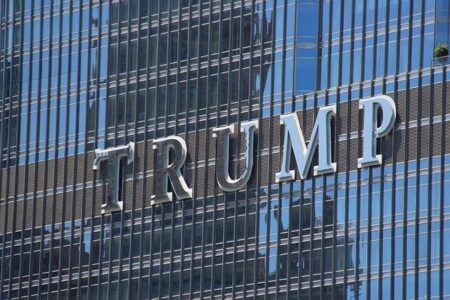Franco-German tensions are rattling the EU’s unity, threatening its strength to push back against Trump’s policies. Conflicting priorities between Paris and Berlin could weaken the bloc’s impact and sway on the global stage
Browsing: international relations
Envoys of Donald Trump and Volodymyr Zelensky are preparing for pivotal peace talks in Davos, exploring fresh pathways to end the Ukraine conflict, officials confirmed ahead of the annual World Economic Forum
Japan has accused the U.S. of failing to meet its commitments on $6.9 billion in arms supply contracts, raising serious concerns about major delays and delivery issues. This dispute highlights the ongoing hurdles in defense cooperation between the two allies
Former President Trump has ignited a new firestorm by blending his three most provocative ideas: proposing to buy Greenland, pushing to seize Canada, and imposing aggressive tariffs-sparking fierce bipartisan backlash
Italy and South Korea have teamed up to turbocharge collaboration in artificial intelligence and defense technologies. This dynamic partnership promises to spark groundbreaking innovation and deepen the strategic ties between the two nations, officials announced
China has boldly stepped forward to host the High Seas Treaty secretariat, highlighting its growing clout in global maritime governance. This strategic move contrasts sharply with the US retreating from multiple UN bodies, signaling a major shift in the balance of geopolitical power
The daughter of Italy’s Prime Minister, a devoted K-pop enthusiast, recently set off on an exciting adventure to South Korea. Her trip highlights the growing cultural bond between Italy and Korea, celebrating the unstoppable global phenomenon of K-pop
Canada’s Prime Minister has praised the strategic partnership with China as essential for steering through today’s shifting global landscape, emphasizing the crucial role of collaboration amid evolving geopolitical and economic challenges, The Guardian reports
Brazil has fiercely condemned the US for crossing an “unacceptable line” with its actions in Venezuela, as Brazilian officials maintain a sharp watch on the border amid rising tensions, Reuters reports
The UK breaks ranks with France and Italy over proposed talks with Putin, exposing deepening divisions within the EU on how to handle Russia. While London urges caution, Paris and Rome advocate for dialogue as tensions continue to rise
Hungary and Italy have officially joined former President Trump’s “Peace Council,” delivering a powerful surge of European support for the initiative. This bold step aims to deepen diplomatic connections and foster greater stability amid today’s complex global challenges
Former President Donald Trump is now setting his sights on Canada, ramping up attention on North American interests amid rising tensions over Greenland. This move underscores an escalating focus on regional assets as diplomatic rivalries continue to intensify, NBC News reports
French President Emmanuel Macron commanded attention at an urgent defense council meeting, addressing pressing security challenges tied to Greenland and Iran. Emphasizing France’s strategic priorities and unwavering dedication to regional stability, he highlighted the critical nature of these issues, France 24 reports
The UK’s Labour Party is gearing up for a renewed battle over EU relations, taking a strong and decisive stand to reshape ties in the post-Brexit era. This bold move promises to ignite intense political debates as the stage is set for critical upcoming negotiations
President of Russia extended a warm and gracious welcome to the newly appointed foreign ambassadors during a grand ceremony where they presented their letters of credence. This prestigious event celebrates the power of diplomatic ties and underscores Russia’s unwavering commitment to building strong global partnerships
Eurasia Group’s “Top Risks 2026” highlights the escalating geopolitical tensions, sweeping economic changes, and technological challenges that could define Japan’s path to stability and growth. At the forefront are urgent regional security threats and possible disruptions to critical supply chains that demand close attention
The German military has withdrawn its team from Greenland amid rising tensions over Arctic security, highlighting the escalating geopolitical rivalries heating up the region, according to reports from EUAD:BATS on Seeking Alpha
Former U.S. President Trump has announced bold new tariffs targeting eight European countries, escalating a fierce diplomatic showdown ignited by the Greenland controversy. This move heightens tensions against a backdrop of ongoing trade disputes and global power struggles
Germany has joined forces with NATO allies on a symbolic mission to Greenland, drawing sharp attention to the Arctic’s vital strategic importance amid rising geopolitical tensions. This deployment underscores the West’s growing dedication to safeguarding the Arctic region
Brazil’s President Lula celebrated the groundbreaking EU-Mercosur trade deal as a revolutionary step for economic ties between Europe and South America, despite not being present at the signing ceremony. This historic agreement is set to unlock exciting new opportunities and deepen connections across continents




















